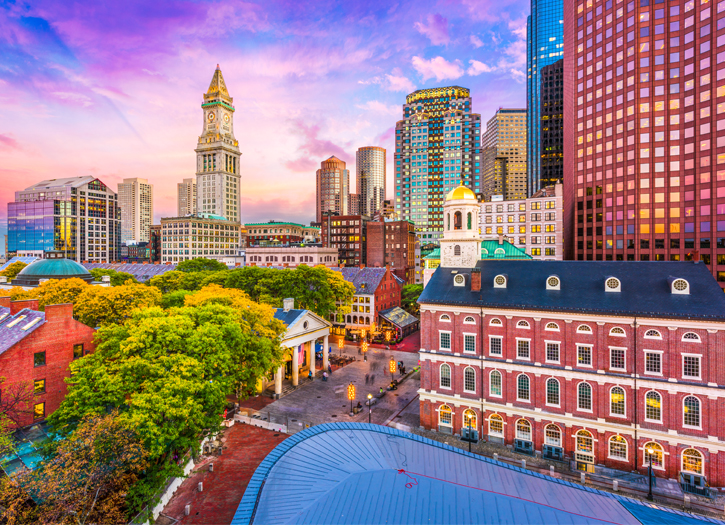The COVID-19 pandemic in Massachusetts is part of an ongoing pandemic of coronavirus disease 2019 (COVID-19) in the U.S. state of Massachusetts. The first confirmed case was reported on February 1, 2020, and the number of cases began increasing rapidly on March 5. Governor Charlie Baker declared a state of emergency on March 10. By March 12, more than a hundred people had tested positive for the virus.
In May, Massachusetts was third in the U.S. for overall number of cases and third for cases per capita statewide, behind New York and New Jersey. New cases per day peaked on April 24, 2020 at 4,946. As of September 27, 2020, there have been 130,642 total cases and 9,404 deaths among cases of COVID-19 in Massachusetts. 64% of confirmed and probable deaths were among residents of long-term care facilities. The state reported 2,192,625 people tested by molecular test, 119,935 tested by antibody test, and 126,585 tested by antigen test.
On March 13, Governor Baker prohibited gatherings of more than 250 people. The measure was targeted at large events and exempted most workplaces, transit buildings, polling locations, government buildings, and schools. Cardinal O’Malley, the Roman Catholic Archbishop of Boston, announced that all daily and Sunday masses and other religious services would be suspended in the Archdiocese of Boston. Boston Mayor Walsh announced that Boston Public Schools (BPS) would be closed starting on March 17 until April 27; two days later, he ordered all public and private schools in the state to close for three weeks, from March 17 through April 7. The same day, he banned eating out at restaurants, banned gatherings of more than 25 people.
The Massachusetts Education Commissioner canceled MCAS standardized tests on April 10. Governor Baker signed a law on April 20 banning residential and small business evictions and foreclosures on homeowners (other than emergencies), to remain in effect for four months or until the state of emergency is ended. Governor Baker also announced on April 20 that Massachusetts schools would not return to in-person learning for the remainder of the academic year, and extended through June 29 a previous order to close non-emergency childcare services.4,946 new cases of COVID-19 were reported in Massachusetts on April 24, a date that would later be determined to be the peak in the surge as measured by new daily cases.
The Massachusetts State Collegiate Athletic Conference announced on July 16 that it was suspending the Fall 2020 sports season. Applying to both indoor and outdoor sports, the decision impacts Bridgewater State University, Fitchburg State University, Framingham State University, Massachusetts College of Liberal Arts, Massachusetts Maritime Academy, Salem State University, Westfield State University, and Worcester State University, as well as other universities which are affiliate members of the conference for football or golf.To improve revenues for restaurants with liquor licenses, Governor Baker signed a law on July 21 allowing restaurants to serve cocktails to go in sealed containers until at least February 2021.
On September 3, Governor Baker announced a community messaging campaign targeted towards Chelsea, Everett, Lawrence, Lynn, and Revere: communities that were still experiencing very high rates of COVID-19.By early September, some Massachusetts universities had received media attention when students disregarded social distancing rules imposed by the schools. In mid-August, more than 20 College of the Holy Cross students tested positive for SARS-CoV-2 after partying off-campus in Worcester, Massachusetts. The school said the students who organized the party would be punished for breaking an agreement they had made before returning to school.Northeastern University announced on September 4 that they had dismissed eleven students caught violating social distancing rules within a day .
On March 15, Governor Baker banned all public gatherings of more than 25 people, closed all K–12 public schools from March 17 through April 7, and banned on-site service at bars and restaurants for the same period. On March 25, Baker ordered all schools and non-emergency childcare services to be closed through May 4, extending the original closure by three weeks.On April 21, Baker announced that schools would not reopen for the remainder of the school year, and extended the order to close non-emergency childcare services through June 29.







Add Comment
You must be logged in to post a comment.